Visual computing is an interdiscipinary field of computer graphics and computer vision, involving computer graphics, computer vision, robotics, visualization, human-computer interaction and many other domains. In the era of big data, visual computing is widely used in different fields, such as face recognition in intelligent products, 3D reconstruction of large-scale city model in virtual reality roaming, driverless vehicle on the road, etc. The research results of visual computing are changing our lives.
The 7th "Visual Computing" Summer School of Shandong University will be held online. Throughout the Summer School, top experts from all over the world will be invited to give lectures on the basic theory, application field and development frontier of visual computing, including: Computer Graphics, Computer Vision, Human-Computer Interaction, Robotics, Virtual Reality/Augmented Reality (VR/AR), 3D Printing, Visualization, etc.
Special Activities:
DIY Practices: We will provide in-person guidances for each student during DIY, covering topics in Virtual Reality, 3D Printing and Deep Learning. Outstanding students will get award at the end of this journey.
Communication Opportunities: We will provide opportunities for the attendees to communicate with leading experts in visual computing, share wonderful ideas and cultivate innovative thinking.
Come and Join us in this extraordinary July!
Registration is only for offline
Please register our summmer school before June 20, 2021.
Offline participation is limited, and selection will be organized, and students will be admitted with board and lodging; for online participation (no DIY activities), no registration is required.
Registration Review Stage: June 20 - June 25, 2021. During this stage, we will send confirmation emails to students who have passed the review, and confirm your interested DIY group through online calls.
Please register our summer school before July 5, 2021.
July 5-July 10 is the registration review stage, during which the confirmation emails are sent to applicants who have passed the review.
The registration fee is 600 yuan per person (lunch is included, accommodation is not included).
Registration link: IRC summer school registration system
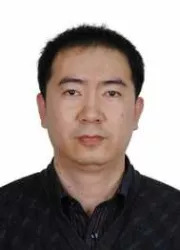
Feng Tian, Chinese Academy of Sciences
Feng Tian is a second-level researcher at the Institute of Software Research of the Chinese Academy of Sciences, a leader in science and technology innovation under the National "Ten Thousand People Plan", a special allowance expert of the State Council, a chief scientist of the National Key Research and Development Program, a recipient of the National Excellent Youth Fund, and a member of the "Innovative Talent Promotion Program" of the Ministry of Science and Technology. He is also the chief scientist of the National Key Research and Development Program, the recipient of the National Excellent Youth Fund, and the leader of young and middle-aged science and technology innovation talent of the Ministry of Science and Technology. He is the Chairman of ACM SIGCHI China Chapter (2011-2019), Deputy Director of Human-Computer Interaction Committee of Chinese Computer Society, Deputy Director of Intelligent Interaction Committee of Chinese Society of Artificial Intelligence, and Deputy Director of Human-Computer Interaction Committee of Chinese Society of Graphics.
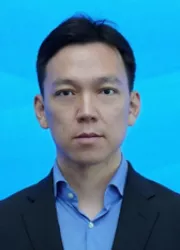
Rongrong Ji, Xiamen University
Rongrong Ji is a Nanqiang Distinguished Professor at Xiamen University and a recipient of the National Outstanding Young Scientists Fund. His main research interests are computer vision. In recent years, he has published more than 100 papers in TPAMI, IJCV, ACM Transactions, IEEE Transactions, CVPR, NeurIPS and other conferences. His papers have been cited by Google Scholar more than 10,000 times. He was awarded the First Prize of Technical Invention of Ministry of Education in 2016, the First Prize of Provincial Science and Technology Progress in 2018, and the Youth Science and Technology Award of Fujian Province in 2019. He was/is presiding over the National Defense 973 Project, National Natural Science Foundation of China Joint Key Fund, and other projects. He is the chair of CVPR and ACM Multimedia, the deputy director of the academic working committee of the Chinese Society of Graphical Graphics, and the member of the advisory committee for the construction of artificial intelligence in the Ministry of Education's Electronic Information Teaching Instruction Committee.
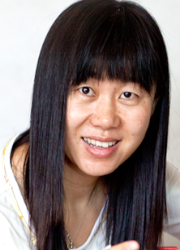
Shixia Liu, Tsinghua University
Shixia Liu is an Associate Professor at Tsinghua University and an IEEE Fellow. Her main research interests are interpretable machine learning, text visualization analysis and text mining. 2020 inducted into IEEE Visualization Academy, paper chair of IEEE VIS (VAST) 2016 and 2017, CCF Class A conference, member of IEEE VIS 2020-2023 Steering Committee. Served as Associate editor-in-chief and former editorial board member of IEEE Transactions on Visualization and Computer Graphics; served as editorial board member of CCF Class A journal Artifical Intelligence He is on the editorial board of IEEE Transactions on Big Data and ACM Transactions on Interactive Intelligent Systems.
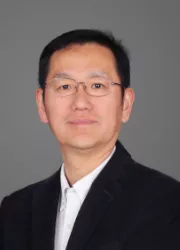
Yue Liu, Beijing Institute of Technology
Yue Liu, Professor and Doctoral Supervisor of School of Optoelectronics, Beijing Institute of Technology, Director of Institute of Optoelectronic Information Technology and Color Engineering, Deputy Director of Beijing Mixed Reality and New Display Engineering Technology Research Center. His main research areas include virtual reality and augmented reality, natural human-computer interaction and computer vision, etc. He is also the deputy director of the Virtual Reality Committee of the Chinese Computer Society; the deputy director of the 3D Education and Equipment Committee of the Chinese Society of System Simulation; the deputy director of the Intelligent Interaction Committee of the Chinese Society of Artificial Intelligence; the director and deputy secretary-general of the Chinese Society of Graphics, the deputy director of the Imaging Detection and Perception Committee, and the deputy director of the 3D Interaction Committee.
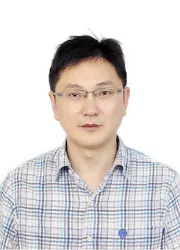
Weiwei Xu, Zhejiang University
Weiwei Xu is a researcher of State Key Laboratory of CAD&CG of Zhejiang University, a Distinguished Professor of Qianjiang Scholar of Zhejiang Province, a recipient of National Excellent Youth Fund, and a key project leader of National Natural Science Foundation of China. He was a researcher in the Network Graphics Group of Microsoft Asia Research Institute, and a Distinguished Professor of Qianjiang Scholar at Hangzhou Normal University. He has published more than 30 papers in SIGGRAPH (ASIA), IEEE TVCG, and IEEE CVPR, AAAI, the top academic conference on artificial intelligence. Ltd, Hangzhou Fei Bai 3D Technology Co., Ltd and Shenzhen Wangduan Technology Co.
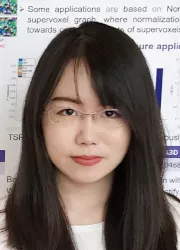
Ran Yi, Shanghai Jiao Tong University
Ran Yi is a long-appointed assistant professor at Shanghai Jiao Tong University. His main research interests are computer vision and computer graphics. He received his B.E. and Ph.D. degrees from Tsinghua University in 2016 and 2021, respectively. During his PhD, he published 17 papers in international journals such as PAMI, TOG, TVCG, TASE and international conferences such as CVPR, ICCV, IROS. He received the Outstanding Doctoral Dissertation Award from the Beijing Graphics and Graphics Society in 2021, the Academic Emerging Award from the Computer Vision Special Committee of the Chinese Computer Society in 2019, and the Microsoft Scholar nomination in 2019.
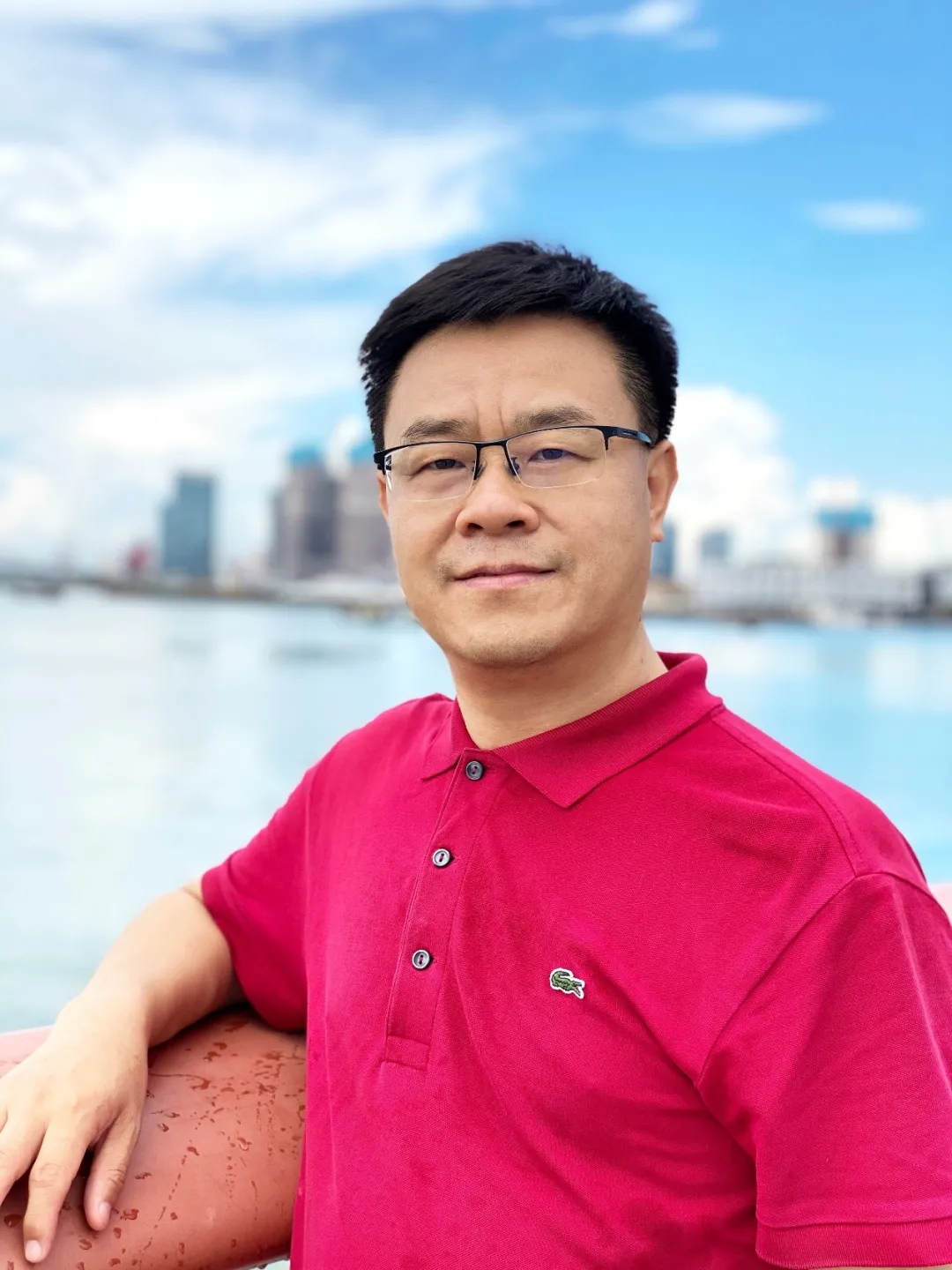
Aimin Hao, Beihang University
Aimin Hao is a professor and doctoral supervisor of Beihang University. Director of National Engineering Laboratory of Virtual Reality/Augmented Reality Technology and Application (Beihang), Deputy Director of State Key Laboratory of Virtual Reality Technology and System (Beihang), Member of Electronic Science and Technology Committee of Ministry of Industry and Information Technology, Director of China Simulation Society, Vice Chairman of Beijing Computer Society, Executive Vice Chairman of China Virtual Reality Industry and Technology Innovation Platform, National Member of Chinese Medical Association. He is a member of the National Committee of Digital Medicine Branch. He has long been engaged in the research and application of modeling theory and drawing methods in virtual reality. He has presided over more than 10 national projects or issues such as major/key projects of National Natural Science Foundation of China, National Key Research and Development Program, and major instruments of Ministry of Science and Technology, etc.
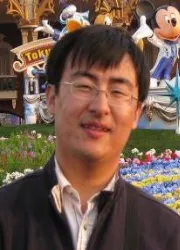
Bin Guo, Northwestern Polytechnical University
Bin Guo is a professor and doctoral supervisor in the School of Computer Science of Northwestern Polytechnical University, a recipient of the National Outstanding Young Scientist Fund, the deputy director of the Key Laboratory of Intelligent Perception and Computing of the Ministry of Industry and Information Technology, and the director of the Intersection of Computing and Art Research Center of Northwestern Polytechnical University. He was selected as one of the "New Century Excellent Talents" by the Ministry of Education (2012) and one of the "Ten Thousand People Plan" by the National Young Talent (2017). He is mainly engaged in the research of pervasive computing, mobile group intelligence, and big data intelligence. He has published more than 150 papers in IEEE/ACM journals and conferences at home and abroad, and has been the first to develop CrowdOS (http://www.crowdos.cn/), an open source and customizable mobile swarm intelligence perception platform, which has been applied and promoted for smart cities, public security, intelligent manufacturing and other national major needs.
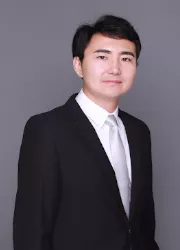
Xin Fan, Dalian University of Technology
Xin Fan is the Dean of International Information and Software College of Dalian University of Technology, Professor and Ph. D. degree from Xi'an Jiaotong University, and a postdoctoral fellowship from Oklahoma State University and the University of Texas Southwestern Medical Research Center, USA. His main research interests are machine vision and image processing. He has presided over one key project of the National Natural Science Foundation of China, three projects of the National Natural Science Foundation of China, and sub-projects of the National 863 Project. He was selected as one of the 2011 "New Century Excellent Talents Support Program" by the Ministry of Education and one of the "Hundred Million Talents Project" in Liaoning Province. He was awarded the Second Prize of National Teaching Achievement and the First Prize of Liaoning Teaching Achievement, the Second Prize of Liaoning Scientific and Technological Progress and the First Prize of Dalian Scientific and Technological Progress, and was awarded the Best Student Paper of ICME2015 as the corresponding author.
Undergraduates will tentatively participate in the following five DIY groups, complete the corresponding tasks and prepare for the final showcase/presentation.Outstanding students will be awarded at the end of this journey.
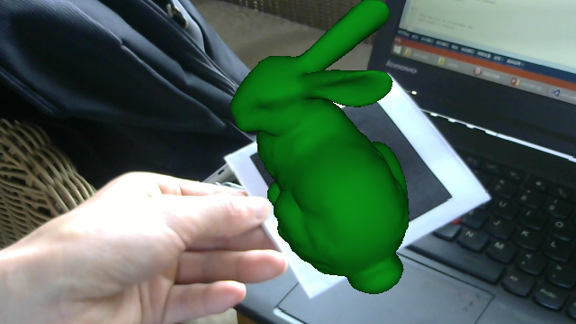
This topic will guide students to build an AR application development environment locally to achieve AR application development based on the currently popular virtual reality development tools and platforms. Experience the dream experience brought by augmented reality for yourself.
The topic will be divided into two projects, which are real-time virtual and real fusion based on AR Toolkit and OpenGL programming and easyar-based mobile phone augmented reality animation on the Unity platform. Students can realize the effect of augmented reality by programming in the local environment, experience the charm of future technology.
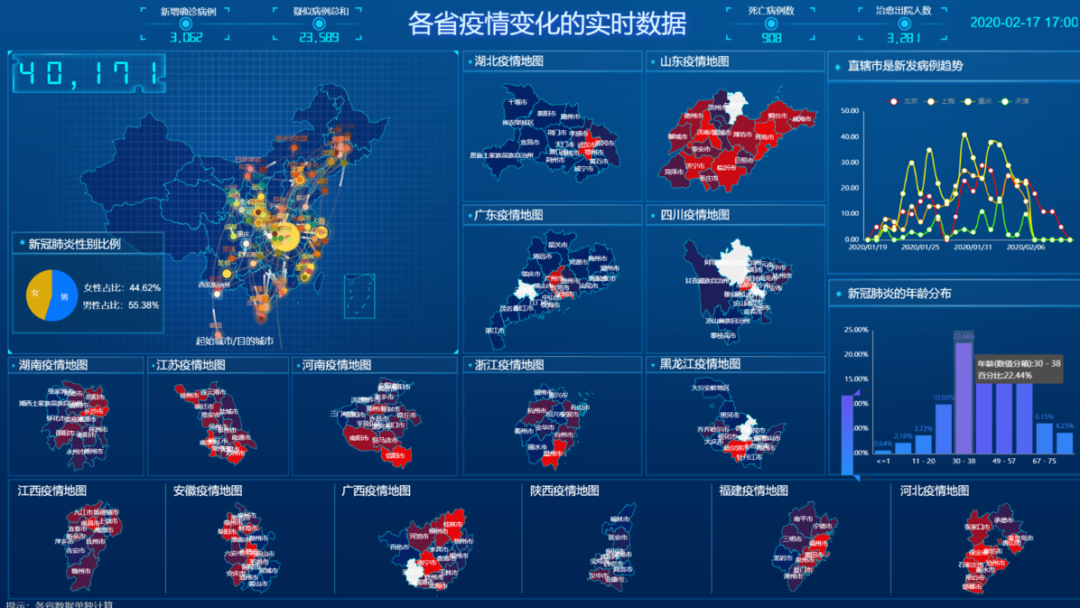
This topic can expose students to the most cutting-edge visual analysis problems and discussthe beauty of data. Students can be exposed to the presentation and analysis of three-dimensional data, such as the visual analysis of three-dimensional medical data, or the visual analysis of information, such as visualization of epidemic situation, social network information visualization and so on, exert their imagination and feel the beauty of data with zero distance.
This year, the topic of visual analysis will focus on spatiotemporal situation analysis of epidemic situation, visualization of epidemic propagation mode and visualization of public opinion. By collecting data related to the epidemic, students use relevant data processing and visualization methods to visualize the content related to the epidemic and more intuitively feel the changes brought about by the epidemic.
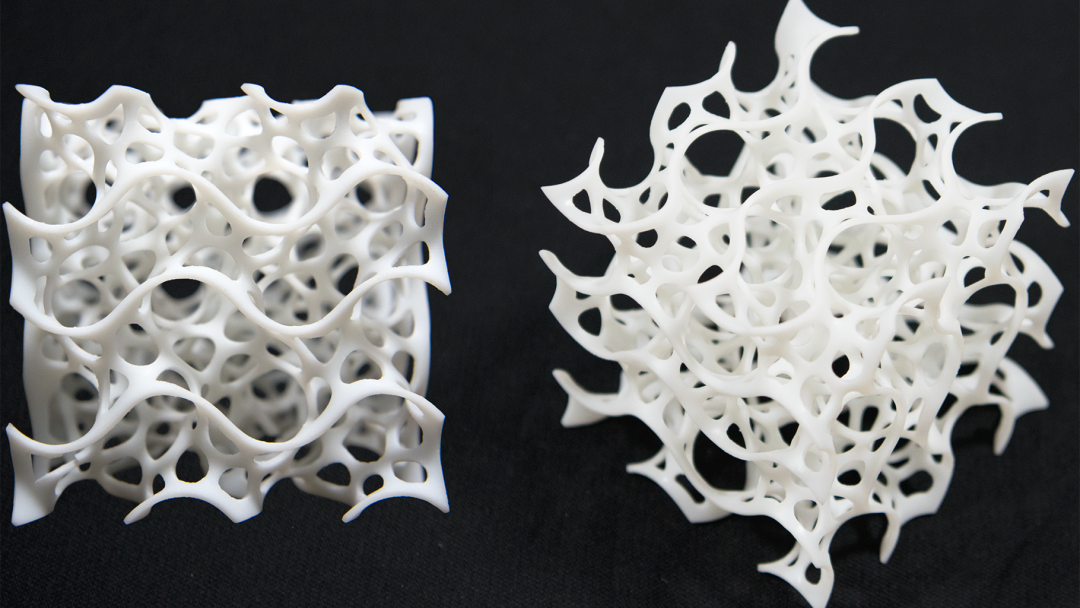
This topic is based on the mainstream technology of desktop 3D printers, Fused Deposition Modeling (FDM), and provides you with two DIY topics that are both knowledgeable and interesting, as well as standard FDM printers and clay printers. Although the summer school students of this year cannot visit the site in person, they can remotely observe the whole process of printing through the camera, and can produce the results through the above printer, and experience the novelty and fun of designing their own products through 3D printing.
The 3D printing project will be divided into two small projects, which are the path design based on G-code clay printing and the generation of porous models based on TPMS. Through these two projects, students can understand the basic process of 3D printing and exercise programming ability and geometric recognition ability, enjoy the challenges and fun from the design to the manufacturing process.

This topic will introduce the basic research problems of object detection, recognition and three-dimensional positioning involved in the automatic driving unmanned vehicle to the students, and provide GPU server for the students to train the deep neural network for automatic driving application by themselves, and experience the exciting progress of artificial intelligence in recent years.
Through this topic, students will use the TensorFlow framework to run PointCNN, a point cloud feature learning architecture, which can be further developed on the provided PointCNN basic version for point cloud semantic segmentation to complete PointCNN-KITTI. The topic also provides improvement projects. Students can combine TensorFlow documents to complete further exploration and feel the advantages and characteristics of deep learning in the field of computer vision.

This topic will guide students to use different forms of robot development tools to realize the entry-level development of intelligent robots. Students can get in touch with the real Turtlebot2 mobile robot and Dobot Master 1st generation manipulator, and experience the charm of different types of intelligent robots.
The robot topic will be divided into two projects, namely: project development based on the ROS system and turtlebot2 robots, where students will complete the control of turtlebot and use turtlebot to complete tasks such as map creation and autonomous navigation; the object sorting work of the robotic arm based on DobotM1, where students can learn about the development of the robotic arm and the related knowledge of visual servoing, and control the robotic arm to complete the task of sorting different colored blocks.
Here, we work together to leave a deep memory.
Enjoy every time, enjoy every one.
1. How to confirm whether the registration is successful?
After successful registration, we will send you a confirmation email with registration number. If you receive the email, it indicates that you have successfully registered. If you do not receive the email, please contact us by irc_cs_sdu@163.com.
We welcome relevant enterprises to participate in this summer school, and jointly promote the development and progress of visual computing!
This summer school provides product display, publicity and promotion for sponsor enterprises. Meanwhile, enterprises can fully communicate with well-known scholars and candidates job applicant in the visual computing. Sponsorship is divided into two levels: SILVER (30000 RMB) and GOLD (50000 RMB).
Summer school can help enterprises carry out brand promotion (silver level) on the website and in the venue, and can arrange 30 minutes of on-site technical report (gold level).
For SILVER level sponsors, we will provide brand promotion services in our website, wechat, weibo and online conference. Besides, we will provide an additional 30 munites technical report opportunity for GOLD level sponsors.
Please contact Mrs Zeng for more details.